Globally, World Bank Group COVID-19 support since April 2020 includes deployment of up to US$160 billion in financial support to help more than 100 countries protect the poor and vulnerable, support businesses, and bolster economic recovery from the COVID-19 pandemic. In Myanmar, World Bank supported active and recently approved projects have rapidly been mobilized in the fight against, and economic recovery from COVID-19, with a strong focus on social inclusion of all people, especially the poor and vulnerable, including in conflict areas:
World Bank Myanmar COVID-19 Support
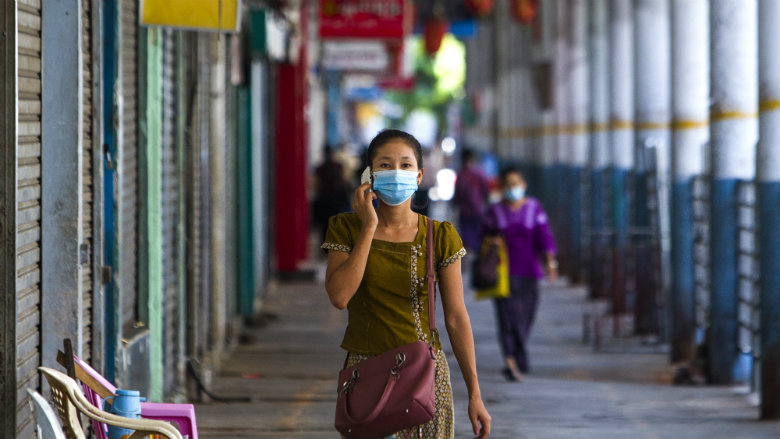
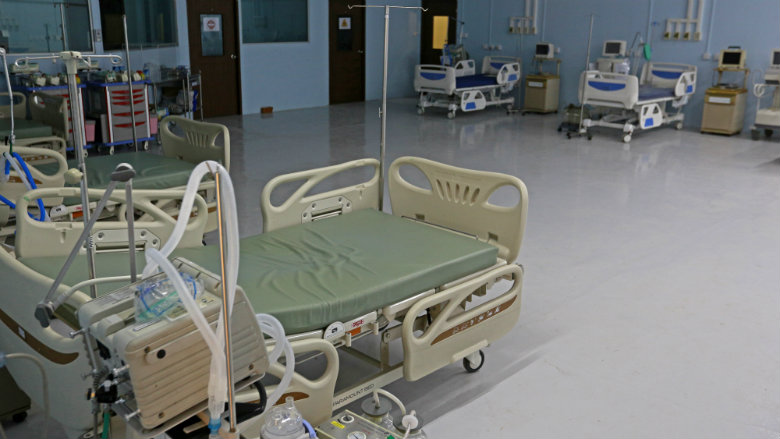
In April 2020 the World Bank approved a US$50 million loan for the Myanmar COVID-19 Emergency Response Project to help Myanmar fill a critical gap in its contingency plan to urgently increase hospital preparedness and surge capacity in order to reduce the spread of COVID-19, protect health workers, and treat patients. Eleven central level hospitals and 50 Region and State level hospitals across all Regions and States have been prioritized for project support. The Ministry of Health and Sports (MOHS) is collaborating with UNOPS to procure the critical goods and supplies for the intensive care units (ICU) in the prioritized 61 hospitals. The project is also supporting MOHS efforts to enhance risk communication and community engagement activities and training of health workers on quality and safety of clinical services.
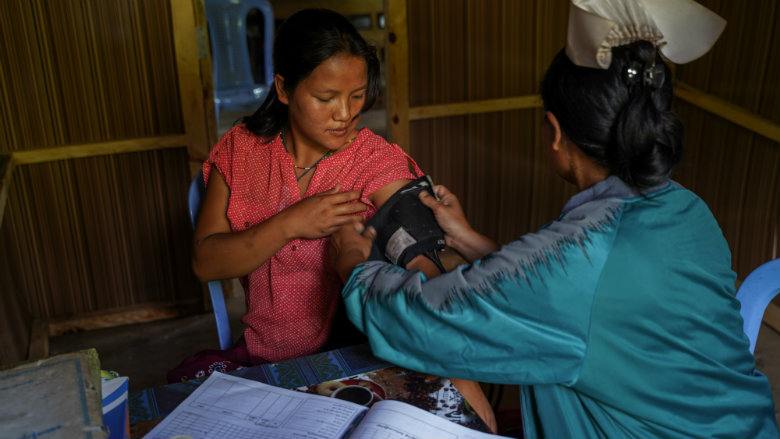
The Myanmar COVID-19 Emergency Response Project is moreover eligible for an US$8 million grant from the World Bank Group’s Global Pandemic Emergency Financing Facility (PEF). The PEF is intended to provide financial support to IDA-eligible countries in case of major multi-country disease outbreaks. The PEF grant for Myanmar will support the surge response in the health sector, with special attention on benefiting the most vulnerable groups and communities in conflict- affected areas in cooperation with ethnic health providers. It will support improvements of intensive care capacity in four hospitals and expansion of laboratory capacity in ten hospitals which are located in states affected by conflict and have hard to reach areas.
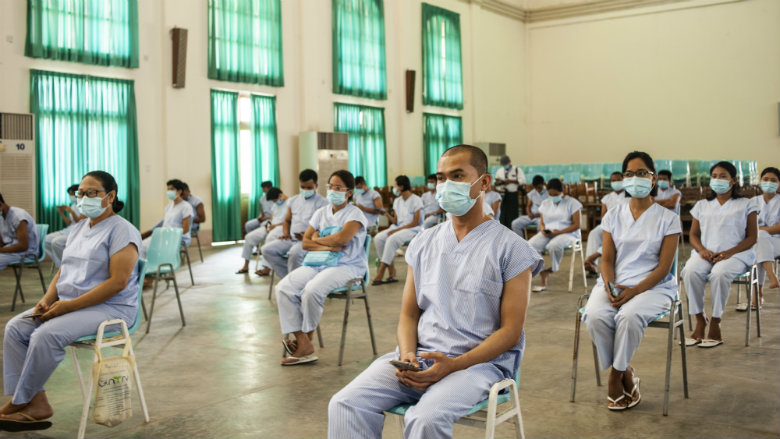
Funds under the World Bank Additional Financing for the Essential Health Services Project, approved in June 2020, have been mobilized to assist capacity building and operational costs to intensify surveillance and testing activities in all states and regions, establish a functioning information and reporting system for all suspected cases, facilitate engagement with basic health staff and Ethnic Health Organizations for community surveillance, disseminate guidelines to health staff and community volunteers, and develop public Information, education and communication materials.
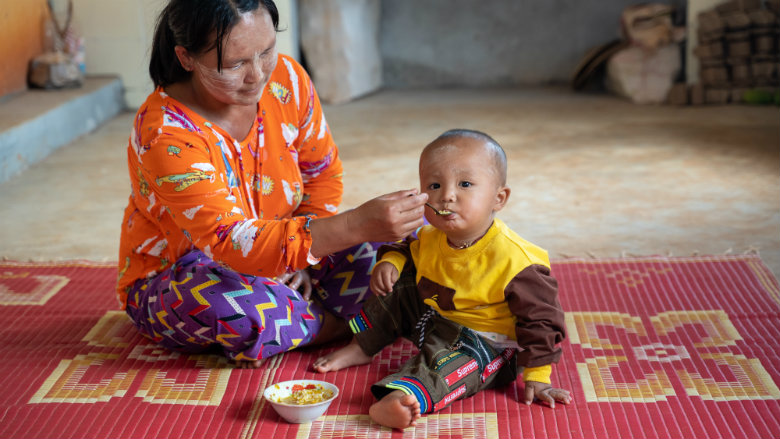
Much needed financial support in these difficult times for people in Myanmar is also provided under the Maternal and Child Cash Transfer Project. Over 126,600 women (pregnant women and women with children under two years old) in Ayeyarwady Region and Shan State were enrolled in the program by late August 2020. The beneficiaries have now received 6 months of cash payment, totaling MMK 90,000 (15,000MMK/$US11.50 per month). Cash distribution began on Sep 9, 2020 through private payment agents, namely AYA and KBZ banks. To date 50% of beneficiaries in Shan State and 70% in Ayeyarwady Region have received payments. Cash is being transferred through E-wallet or through the nearest AYA Pay or KBZ Pay agents. The next round of cash distribution will be in January 2021.
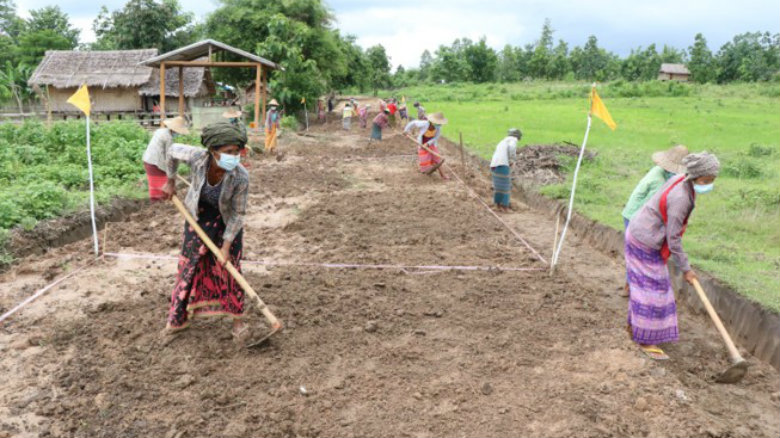
In July 2020 the World Bank activated the Contingent Emergency Response Component (CERC) of the US$480 million Bank-supported National Community Driven Development Project to assist the Government in its response to the COVID-19 pandemic. Through the reallocation of US$110 million from NCDDP the Department of Rural Development is currently supporting 390,000 beneficiary households (42% female participants) in more than 2,500 villages under a cash-for-work (CfW) scheme to provide emergency wage transfer to vulnerable households, and more than 1,700 villages through an emergency village revolving fund (EVRF) to support farmers and rural producers affected by COVID-19. To date, under the CfW scheme approximately MMK 15 billion in wages have been paid to vulnerable households, while the EVRF has approved 134,816 revolving loans, and released MMK 41.1 billion to borrowers. DRD will provide a second round of support to an estimated 4,800 CfW villages and 700 EVRF villages in the upcoming 2020-21 Government budget year.
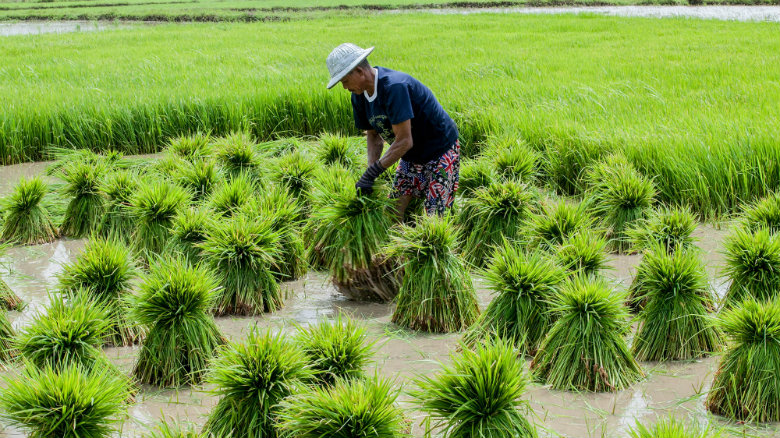
The National Food and Agriculture System Project, approved in June 2020, will support income retention for farmers by improving the quality and utilization of agricultural inputs, and generate labor-intensive cash-for work-activities to create jobs for poor households, in particular for migrants returning to Myanmar after losing jobs abroad due to the pandemic. The project will also support public awareness raising on COVID-19 through social media and other channels. Beyond COVID-19 this US$200 million project aims to increase agricultural productivity and diversification and enhance market access for Myanmar farmers, with a strong focus on inclusion for smallholder farmers, women and other vulnerable groups.
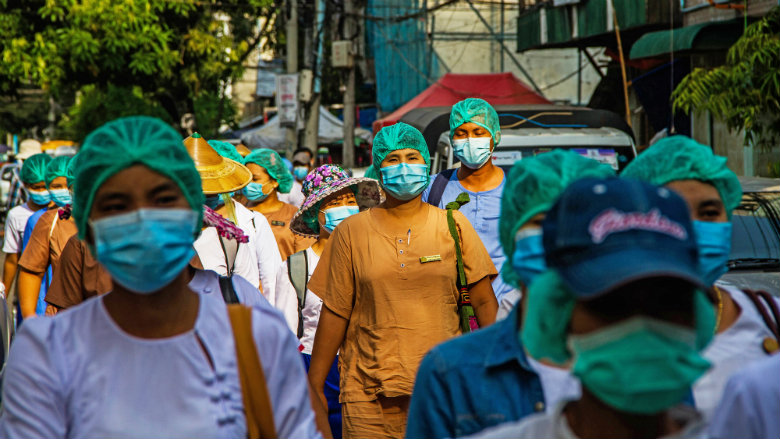
To mitigate longer-term economic effects, Myanmar will benefit from developing keener understandings of the social and economic impacts of COVID-19 on its firms and households. Partnering with the Central Statistical Organization (CSO), the World Bank has established the Myanmar COVID-19 Monitoring Platform to provide accurate and timely economic data to inform and provide key insights to the Government of Myanmar, development partners and wider civil society. The Platform is based on high-frequency phone surveys with firm and household respondents and a community assessment, in addition to existing analytical products such as the World Bank Myanmar Economic Monitor.